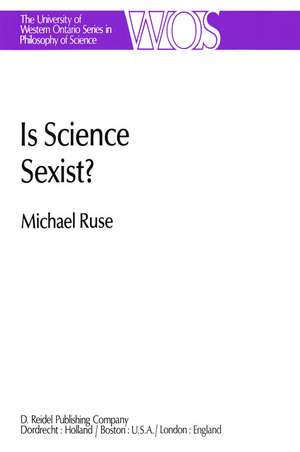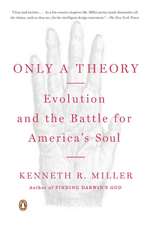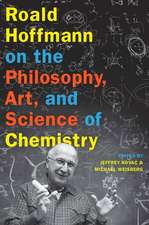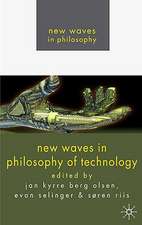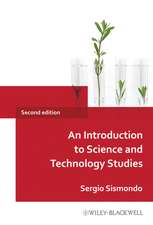Is Science Sexist?: And Other Problems in the Biomedical Sciences: The Western Ontario Series in Philosophy of Science, cartea 17
Autor M. Ruseen Limba Engleză Hardback – 31 iul 1981
| Toate formatele și edițiile | Preț | Express |
|---|---|---|
| Paperback (1) | 641.71 lei 43-57 zile | |
| SPRINGER NETHERLANDS – 31 iul 1981 | 641.71 lei 43-57 zile | |
| Hardback (1) | 648.05 lei 43-57 zile | |
| SPRINGER NETHERLANDS – 31 iul 1981 | 648.05 lei 43-57 zile |
Din seria The Western Ontario Series in Philosophy of Science
- 15%
 Preț: 632.70 lei
Preț: 632.70 lei - 18%
 Preț: 947.35 lei
Preț: 947.35 lei - 20%
 Preț: 583.92 lei
Preț: 583.92 lei - 18%
 Preț: 952.72 lei
Preț: 952.72 lei -
 Preț: 397.76 lei
Preț: 397.76 lei - 15%
 Preț: 644.49 lei
Preț: 644.49 lei - 18%
 Preț: 950.03 lei
Preț: 950.03 lei - 18%
 Preț: 953.82 lei
Preț: 953.82 lei - 15%
 Preț: 643.34 lei
Preț: 643.34 lei - 18%
 Preț: 943.43 lei
Preț: 943.43 lei - 15%
 Preț: 646.11 lei
Preț: 646.11 lei -
 Preț: 386.22 lei
Preț: 386.22 lei -
 Preț: 393.52 lei
Preț: 393.52 lei - 15%
 Preț: 642.18 lei
Preț: 642.18 lei - 18%
 Preț: 950.33 lei
Preț: 950.33 lei - 18%
 Preț: 949.55 lei
Preț: 949.55 lei - 18%
 Preț: 1225.31 lei
Preț: 1225.31 lei - 18%
 Preț: 952.72 lei
Preț: 952.72 lei - 18%
 Preț: 952.89 lei
Preț: 952.89 lei -
 Preț: 393.52 lei
Preț: 393.52 lei - 18%
 Preț: 956.33 lei
Preț: 956.33 lei - 18%
 Preț: 953.97 lei
Preț: 953.97 lei - 18%
 Preț: 1225.62 lei
Preț: 1225.62 lei - 15%
 Preț: 641.20 lei
Preț: 641.20 lei -
 Preț: 384.86 lei
Preț: 384.86 lei - 18%
 Preț: 953.65 lei
Preț: 953.65 lei - 18%
 Preț: 1821.63 lei
Preț: 1821.63 lei
Preț: 648.05 lei
Preț vechi: 762.42 lei
-15% Nou
Puncte Express: 972
Preț estimativ în valută:
124.01€ • 129.80$ • 103.21£
124.01€ • 129.80$ • 103.21£
Carte tipărită la comandă
Livrare economică 31 martie-14 aprilie
Preluare comenzi: 021 569.72.76
Specificații
ISBN-13: 9789027712493
ISBN-10: 9027712492
Pagini: 324
Ilustrații: XX, 299 p.
Dimensiuni: 155 x 235 x 23 mm
Greutate: 0.63 kg
Ediția:1981
Editura: SPRINGER NETHERLANDS
Colecția Springer
Seria The Western Ontario Series in Philosophy of Science
Locul publicării:Dordrecht, Netherlands
ISBN-10: 9027712492
Pagini: 324
Ilustrații: XX, 299 p.
Dimensiuni: 155 x 235 x 23 mm
Greutate: 0.63 kg
Ediția:1981
Editura: SPRINGER NETHERLANDS
Colecția Springer
Seria The Western Ontario Series in Philosophy of Science
Locul publicării:Dordrecht, Netherlands
Public țintă
ResearchCuprins
1. The Structure of Evolutionary Theory.- 1.1. Three features of physico-chemical theories.- 1.2. Evolutionary theory and the observational/theoretical dichotomy.- 1.3. Is evolutionary theory hypothetico-deductive?.- 1.4. But is genetics really part of evolutionary theory?.- 1.5. The consilient nature of evolutionary theory.- 1.6. Conclusion.- Notes.- 2. The Evidence for Evolutionary Theory.- 2.1. Evidence for the synthetic theory’s core.- 2.2. Evidence for the whole theory.- 2.3. Rivals: The first chapter of Genesis.- 2.4. Rivals: Lamarckism.- 2.5. Rivals: Saltationism.- 2.6. Rivals: Orthogenesis.- 2.7. Evolutionary logic.- Notes.- 3. Karl Popper and Evolutionary Biology.- 3.1. Evolutionary theory as a metaphysical research programme.- 3.2. The problem of speciation.- 3.3. Is natural selection a tautology?.- 3.4. The problem of gradual change.- 3.5. Popperian saltationism.- 3.6. Evolutionary biology and evolutionary epistemology.- 4. The Last Word on Teleology, or Optimality Models Vindicated.- 4.1. The teleology of biology.- 4.2. Artifacts and adaption.- 4.3. Consequences and amplifications.- Notes.- 5. The Molecular Revolution in Genetics.- 5.1. Scientific advance: reduction or replacement?.- 5.2. What kind of revolution occurred in genetics?.- 5.3. But did ‘strong’ reduction really occur?.- 5.4. David Hull objects.- Notes.- 6. Does Genetic Counselling Really Raise The Quality of Life?.- 6.1. Genetic counseling.- 6.2. The John F. Kennedy Institute Tay-Sachs programme.- 6.3. The limitations to genetic counseling.- 6.4. The problem of abortion.- 6.5. The problem of the poor.- 6.6. The problem of minorities.- 6.7. What is genetic disease?.- 6.8. Conclusion.- Notes.- 7. The Recombinant Dna Debate: A Tempest in A Test Tube?.- 7.1. The recombinant DNA debate.- 7.2.The nature of recombinant DNA research.- 7.3. The positive case for recombinant DNA research.- 7.4. The negative case against recombinant DNA research.- 7.5. Do the benefits outweight the risks?.- 7.6. The dangers of recombinant DNA research.- 7.7. The argument from epidemiology.- 7.8. Recombinant DNA research considered as science.- 7.9. Can one really separate science and technology?.- 7.10. Epilogue.- Notes.- 8. Sociobiology: Sound Science or Muddled Metaphysics?.- 8.1. What is sociobiology.- 8.2. Humans as seen through the lens of sociobiology.- 8.3. Other sociobiological claims.- 8.4. Is human sociobiology facist?.- 8.5. Is sociobiology prejudiced against homosexuals?.- 8.6. The testability of sociobiology.- 8.7. The falsity of sociobiology.- 8.8. Sociobiology and philosophy.- Notes.- 9. Is Science Sexist? The Case of Sociobiology.- 9.1. How science can show bias.- 9.2. Freudian psychoanalytic theory.- 9.3. The sociobiology of human sexuality: Wilson.- 9.4. The sociobiology of human sexuality: Symons.- 9.5. Is sociobiology sexist? The lesser charges.- 9.6. Is sociobiology sexist? The major charge.- 9.7. Concluding reflections for the feminist.- Notes.- 10. Are Homosexuals Sick?.- 10.1.Two models of health and sickness.- 10.2. The empirical facts about homosexuality.- 10.3. Psychoanalytic causal explanations.- 10.4. Endocrinal causal explanations of homosexuality.- 10.5. Sociobiological causal explanations.- 10.6. Conclusion.- Appendix 1. Matrix comparing sickness models against putative facts about homosexuality.- Appendix 2. Freud’s letter to an American Mother.- Notes.- Name Index.
